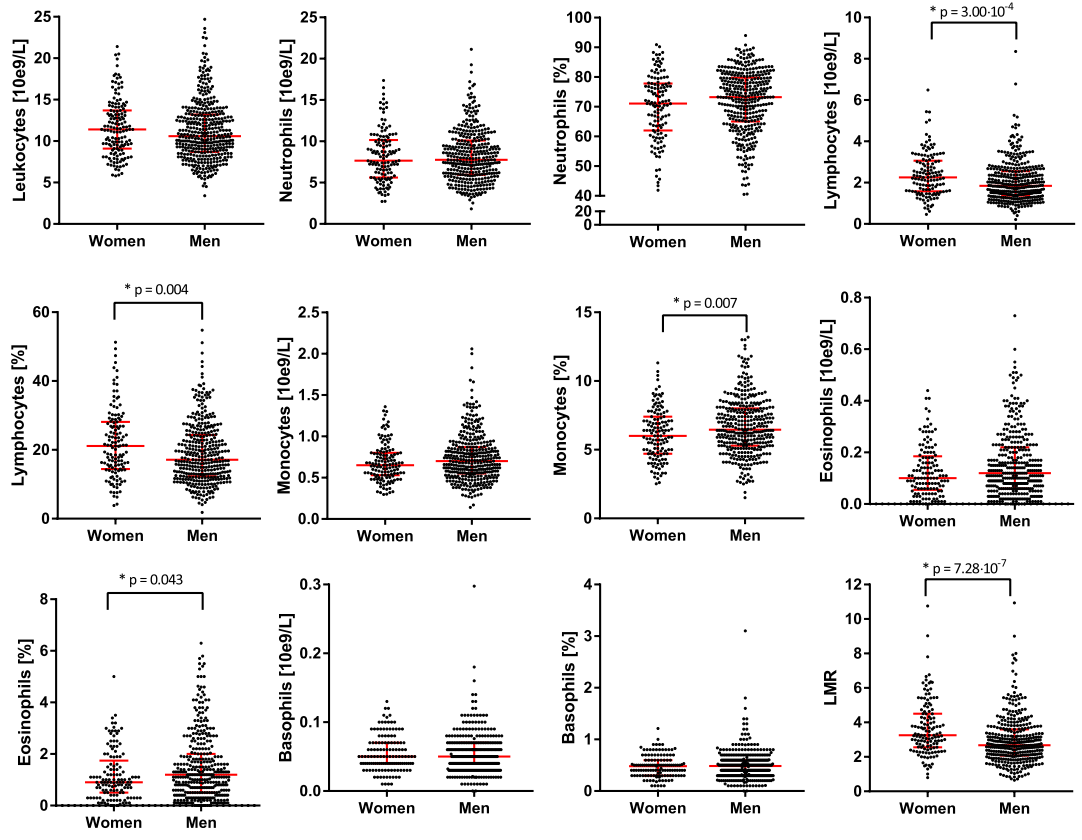
Sex differences in leukocyte profile after myocardial infarction
It is well known that women mount a stronger innate and adaptive immune response compared to men. Whether sex differences exist in the inflammatory response after myocardial infarction remains to be elucidated.
Irene van Blokland aimed to study differences in leukocyte profiles between men and women presenting with a STEMI at the UMCG a recent study. Furthermore, she aimed to identify potential determinants of leukocyte profiles and the prognostic value of a marker of inflammation, the Lymphocyte-to-Monocyte ratio (LMR), after STEMI in both men and women.
The inflammatory response plays a key role after myocardial infarction. It is essential for cardiac repair and remodelling acting as a natural process to clean the infarcted area of dead cells. Excessive inflammation could however lead to excess scar tissue formation, disabling the heart to pump optimally resulting in heart failure over the long term. As men and women are known to mount different immune responses possibly due to effects of sex hormones, studying the leukocyte profiles of men and women after a myocardial infarction could give important insights into possible sex-specific differences in the inflammatory mechanism.

In the current study they studied leukocyte profiles of 552 patients presenting with a myocardial infarction at the UMCG. Irene gives a comprehensive sex-specific overview of immune cell composition in the blood and show that women have higher lymphocyte counts and percentage and men increased levels of monocytes after myocardial infarction. Furthermore, she shows that a higher LMR is associated with smaller infarct size (lower levels of CK-MB and troponin T) and lower 1-year risk mortality in men and women. She replicated our findings in the GIPS-III trial and additionally found that women have a higher LMR compared to men.
With this study, Irene highlights important findings that may lead to an improved understanding of sex-specific inflammatory response after myocardial infarction. Our study serves as a starting point for future research focused on sex-specific differences in immune response after myocardial infarction. An improved understanding could be of large importance to optimising sex-specific treatment of myocardial infarction patients and improve risk stratification.
Quick take-home messages from this research
- Women with a myocardial infarction present with a higher lymphocyte count and percentage.
- The lymphocyte-to-monocyte ratio (LMR) is higher in women presenting with a myocardial infarction.
- A higher LMR is associated with lower peak CK-MB, lower peak troponin T and lower one-year mortality risk in men and women.
After first gaining a comprehensive overview in leukocyte profiles over the cardiovascular disease continuum (Groot et al., JMCC 2019), she studied sex-specific differences in leukocyte profiles in myocardial infarction patients. By further researching the inflammatory response on cellular level, she aims to increase our current understanding in order to identify new therapeutic targets for coronary artery disease.
Irene van Blokland (MD-PhD candidate) is supervised by Pim van der Harst and Lude Franke (dept. of Genetics, UMCG). She studies inflammation in coronary artery disease.
This is the fifth post in a series that highlights our projects related to sex differences in heart disease. A new post is published every two weeks.

